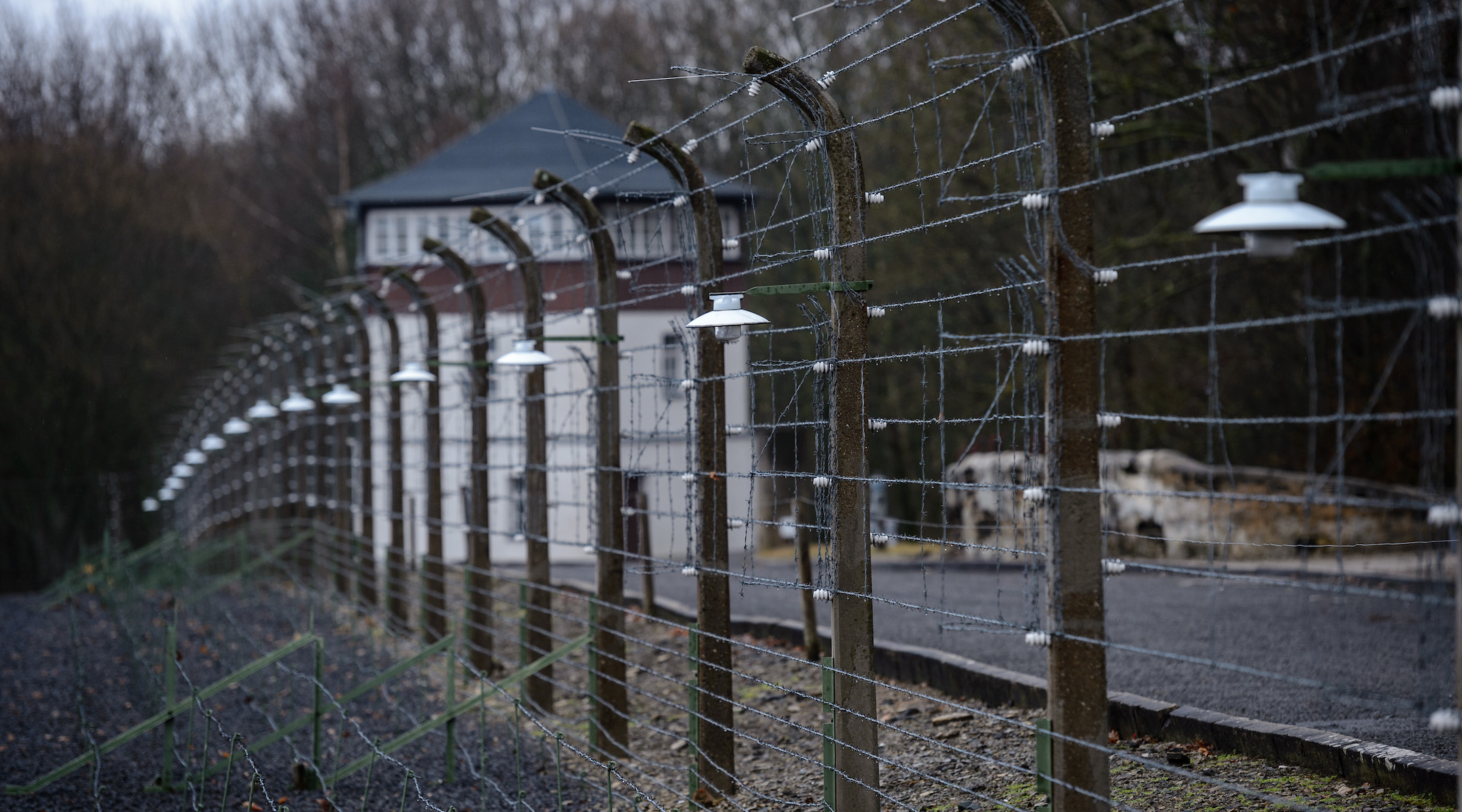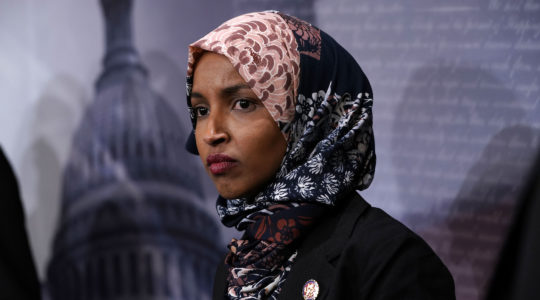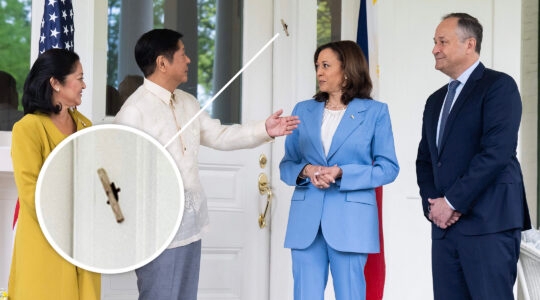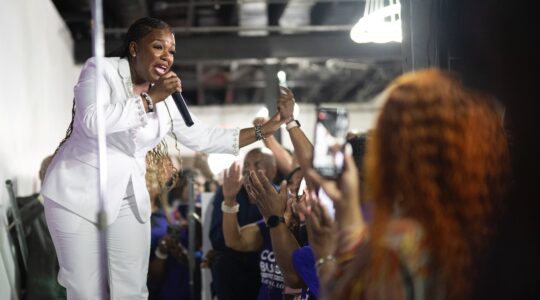(JTA) — More than one in 10 American adults under 40 believes that Jews caused the Holocaust.
That’s one finding from a survey published Wednesday trying to gauge Holocaust knowledge among millennials and Generation Z, a cohort ranging in age from 18 to 39.
The survey found that most respondents had heard of the Holocaust and 37% knew that 6 million Jews died. Slightly more than half could name at least one concentration camp or ghetto.
But 11% of the respondents believed the Jews were responsible for the Holocaust, 15% said they thought the Holocaust was a myth or has been exaggerated, and 20% said people talk about it too much. Nearly half said they had seen Holocaust denial online.
The survey of 1,000 respondents across all 50 states was organized by the Claims Conference, which coordinates restitution and reparations payments for Holocaust survivors and sponsors Holocaust education programs. It was conducted in February and March.
According to the poll, there was little correlation between state Holocaust education requirements and Holocaust knowledge. None of the 10 states with the highest knowledge levels required Holocaust education in high schools, while three states in the bottom 10 — Delaware, New York and Florida — did mandate it.
(The knowledge levels, as defined by the survey, were based on whether respondents had heard of the Holocaust, knew 6 million Jews were killed and could name a concentration camp or ghetto.)
Holocaust knowledge was particularly low in New York, despite the state having the largest population of Jews in the country. Most respondents there could not name a single Nazi camp or ghetto, and 28% said they believed the Holocaust was a myth or has been exaggerated. Wisconsin had the highest knowledge score at 44%, while Arkansas had the lowest at 17%.
“Not only was their overall lack of Holocaust knowledge troubling, but combined with the number of Millennials and Gen Z who have seen Holocaust denial on social media, it is clear that we must fight this distortion of history and do all we can to ensure that the social media giants stop allowing this harmful content on their platforms,” Greg Schneider, the executive vice president of the Claims Conference, said in a statement. “Survivors lost their families, friends, homes and communities; we cannot deny their history.”
The survey had a national margin of error of 3% and approximately 7% for individual states.
It found that more than three-quarters of respondents had definitely heard of the Holocaust and another 10% said they probably had. Among those, more than 70% knew that Adolf Hitler was responsible for the genocide and 86% knew that the Jews were its primary victims.
Lower numbers of respondents were aware of other facts about the Holocaust. Among those who had heard of the Holocaust, more than a third wrongly believed that 2 million Jews or fewer were killed, while nearly half (48%) could not name any concentration camps or ghettos. Asked to describe Auschwitz, the largest Nazi concentration camp, 64% described it correctly.
“The expectation was that at this point in time, a lot of this information would be more familiar,” said Amy Wexler, a Claims Conference spokesperson. “It felt like it was lower than anyone expected.”
The survey also found that approximately half the respondents had seen anti-Semitism and Holocaust denial online. Some 49% had seen seen Holocaust denial or distortion online, with 10% saying they had seen it often. A total of 56% reported seeing Nazi symbols on social media, in their communities or both.
Nearly 60% said they believed something like the Holocaust could happen today.
“The indicators are of concern, and that relates to ongoing concern that we have that history education is in decline, social media use of hate and anti-Semitism is on the rise,” said Gretchen Skidmore, director of education initiatives at the U.S. Holocaust Memorial Museum, who is a member of the task force that oversaw the survey. “The work is very important and Holocaust education is very important to counter these trends.”
Respondents agreed that Holocaust education is important, with 64% believing it should be compulsory in school. Currently, 15 states require Holocaust education in high school, according to the Holocaust museum. A bill providing $10 million to the museum to enhance Holocaust education was signed into law this year.
Skidmore said that in addition to mandating Holocaust education, states must ensure that teachers have proper training to teach the subject matter.
“There are some conditions that need to be present for Holocaust education to be successful,” Skidmore said, adding that the survey showed there was “fundamental knowledge missing.”
Skidmore said “Holocaust education can be very effective when these conditions are met, when teachers are trained, when they feel confident to bring this complex history into their classrooms.”






